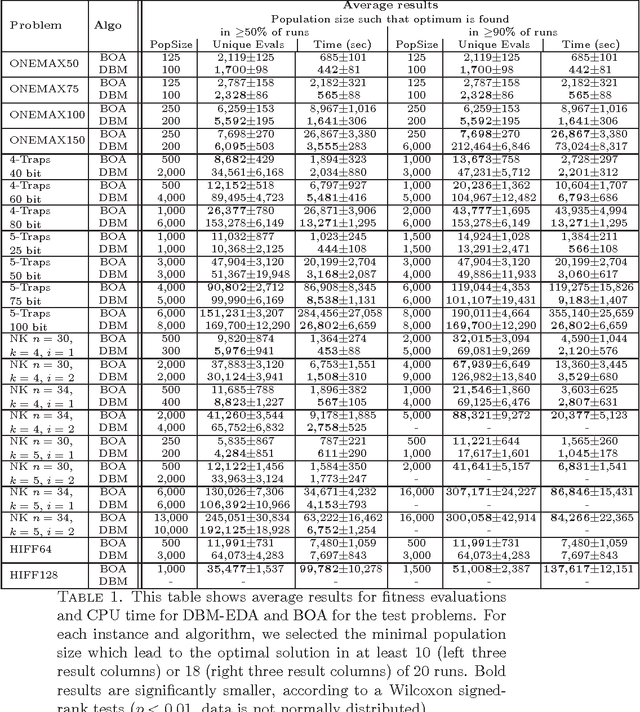Deep Boltzmann Machines in Estimation of Distribution Algorithms for Combinatorial Optimization
Paper and Code
Aug 08, 2016
Estimation of Distribution Algorithms (EDAs) require flexible probability models that can be efficiently learned and sampled. Deep Boltzmann Machines (DBMs) are generative neural networks with these desired properties. We integrate a DBM into an EDA and evaluate the performance of this system in solving combinatorial optimization problems with a single objective. We compare the results to the Bayesian Optimization Algorithm. The performance of DBM-EDA was superior to BOA for difficult additively decomposable functions, i.e., concatenated deceptive traps of higher order. For most other benchmark problems, DBM-EDA cannot clearly outperform BOA, or other neural network-based EDAs. In particular, it often yields optimal solutions for a subset of the runs (with fewer evaluations than BOA), but is unable to provide reliable convergence to the global optimum competitively. At the same time, the model building process is computationally more expensive than that of other EDAs using probabilistic models from the neural network family, such as DAE-EDA.
 Add to Chrome
Add to Chrome Add to Firefox
Add to Firefox Add to Edge
Add to Edge